EV Tires: 5 Facts That Make Them Different from Regular Tires
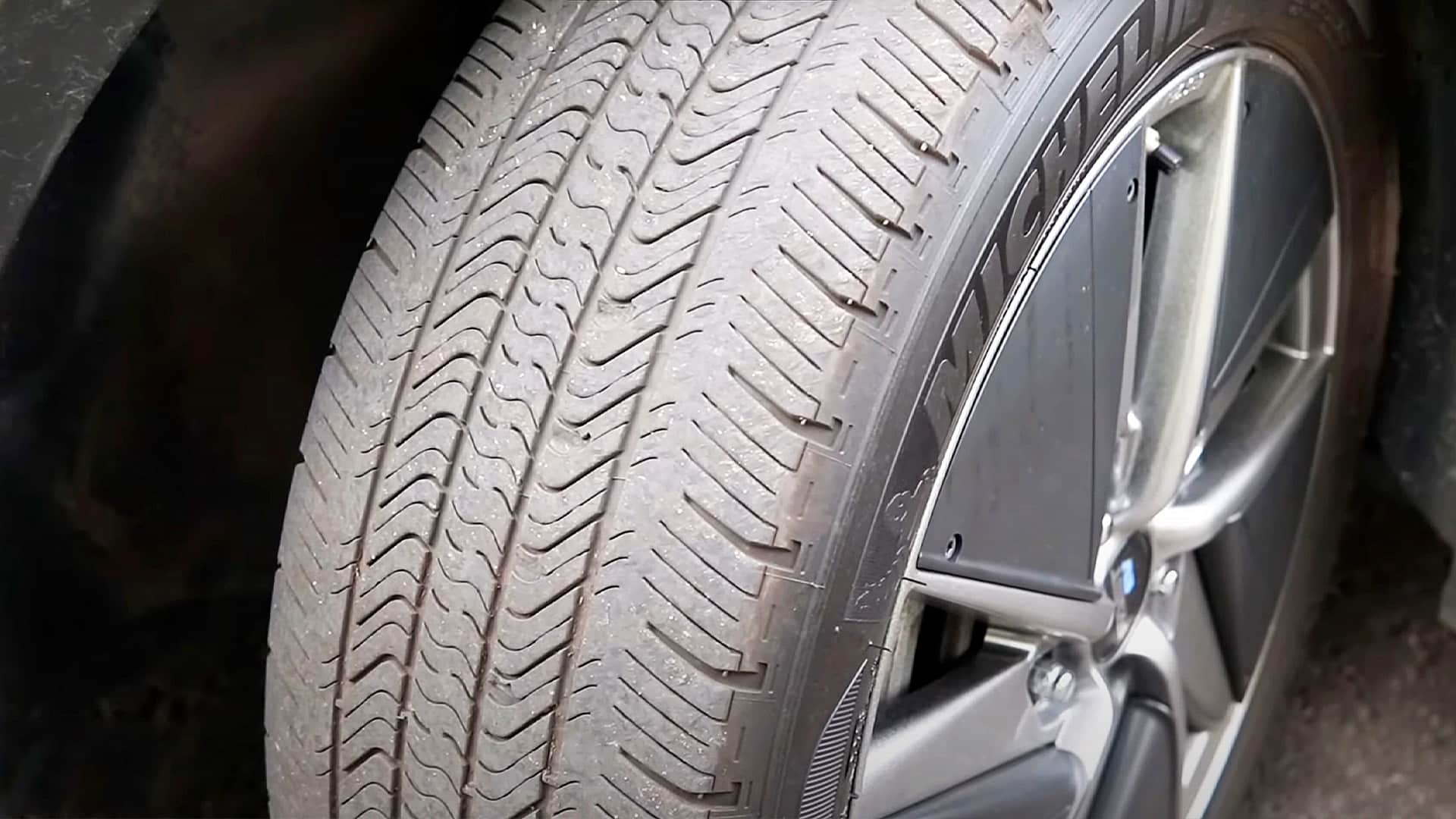
Electric vehicles are rapidly growing in popularity. However, due to their high levels of torque and heavy weight, electric cars require special tires that can handle these demands.
In this article, we’ll explore why EVs need specialized tires and what makes them different from regular ones. We’ll also provide tips on extending the lifespan of your EV tires and answer some frequently asked questions about electric car tires.
Do EVs need special tires?
Electric cars might look like regular cars, yet they offer an entirely different driving experience. With their high levels of torque and heavy weight, electric vehicles need special tires that can handle all these demands.
The good news is that there are now plenty of EV-specific tire options available. These tires are designed with features specifically for electric cars – including increased range and less noise on the road!
Can You Use Regular Tires on Your EV?
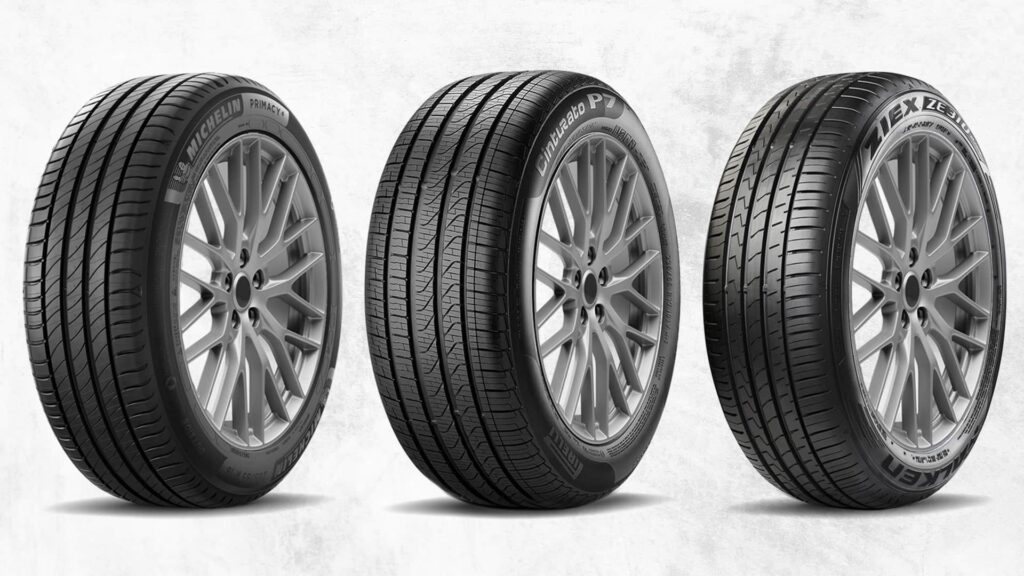
You can technically install regular tires on an electric car, but experts don’t recommend it! Even though traditional tires are considered safe for electric vehicles, you’ll definitely notice a drop in performance and an increase in wear-and-tear.
To be more specific, according to Cnet.com, it is estimated that a standard tire can wear up to 30% faster when used on an EV! What’s causing this issue? It all comes down to torque – the force that propels your wheels forward every time you hit the gas pedal!
Thanks to their powerful engines, electric cars produce much more torque than average cars. And all that extra energy can put a lot of strain on your tires’ grip and structure. That’s why it’s important for EV drivers to get specialized tires that are built just for them.
So even if you’ve had success with certain tire brands or models in the past, it’s best not to take any chances when it comes to tires for EVs. To truly get the most out of your vehicle – and keep yourself safe – make sure to invest in specialized EV tires instead.
How are EV Tires Different?
EV tires are different from regular tires as they are specifically designed to meet the unique requirements of electric vehicles. So, let’s take a closer look at what sets them apart:
1. EV Tires Are Made To Withstand Added Weight
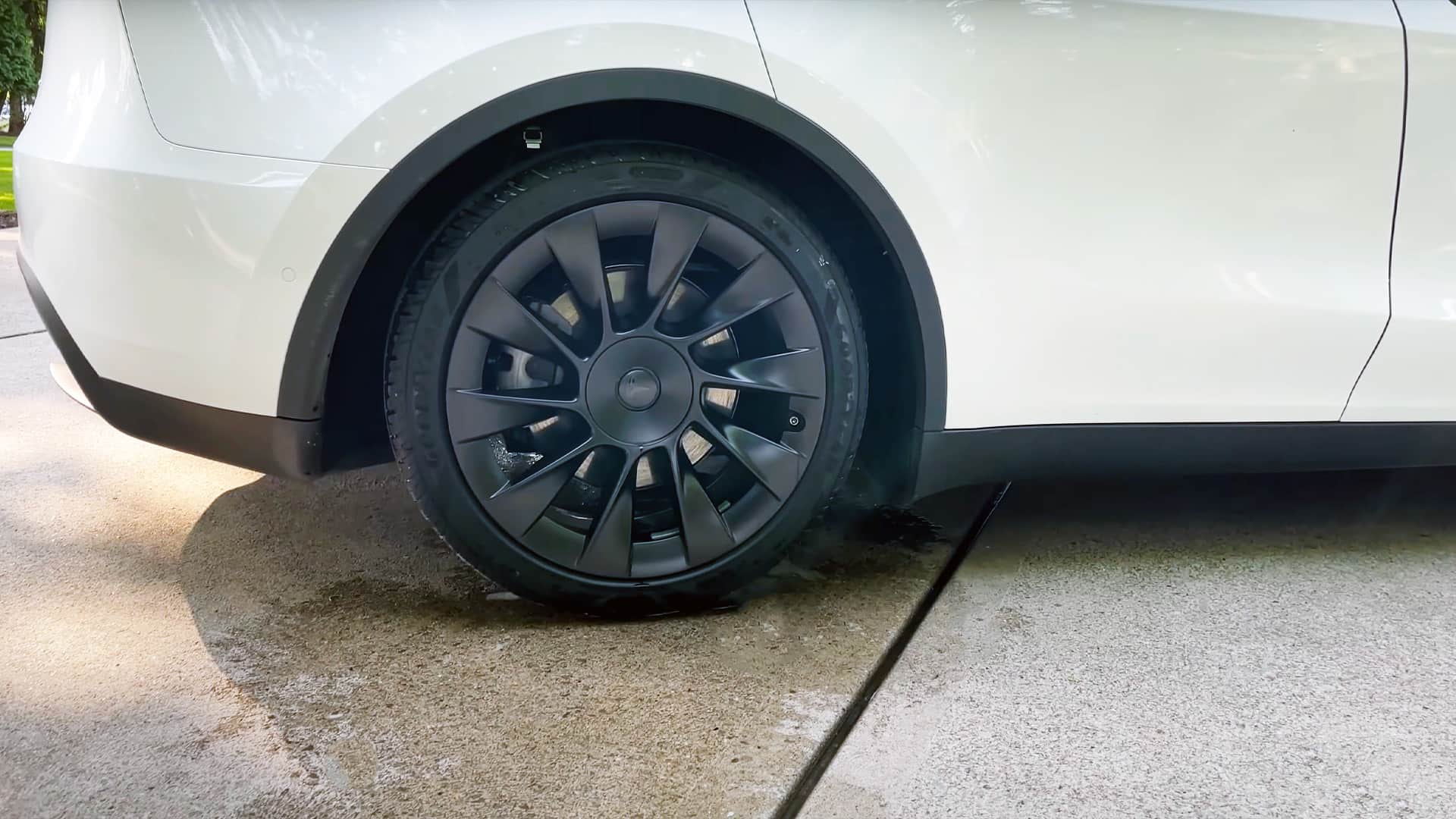
One of the biggest differences between electric vehicle tires and traditional tires is their construction. Because EVs are usually heavier than regular cars due to their heavy battery, EV tires need to be built with extra structural support.
If you try to use standard tires on an electric vehicle, they’re likely to wear out faster and in some rare cases even deform over time – making your car harder to handle and potentially less safe on the road.
2. EV Tires Are Quiter
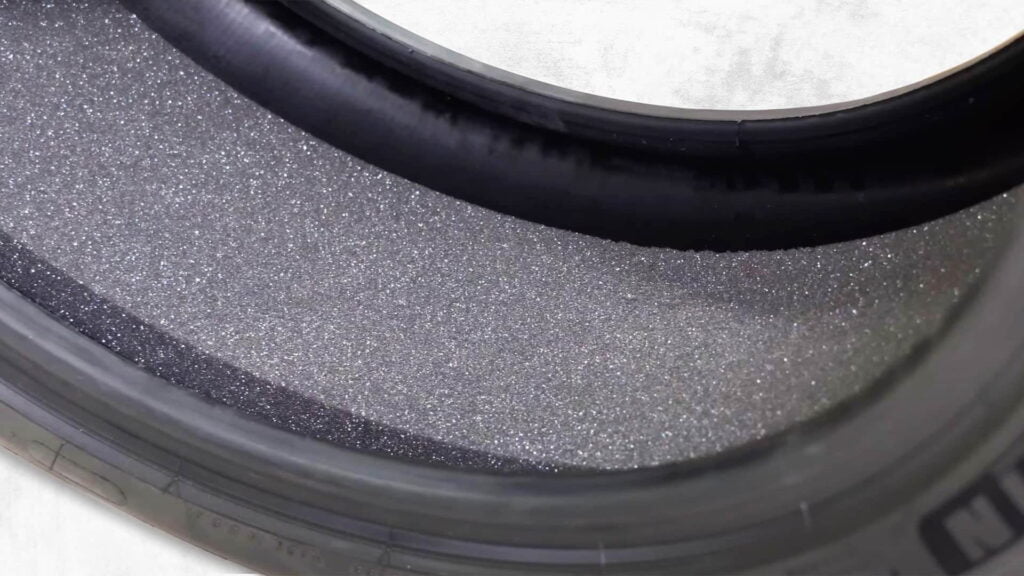
Another way that electric vehicle tires are different from traditional tires is in their noise level. EVs are designed to be as quiet as possible, which is why EV tires come equipped with special foam to absorb more sound.
In contrast, regular tire designs don’t focus too much on reducing noise since the normal volume of an internal combustion engine tends to drown out any additional sounds they might make. So if you try to use standard tires on an electric car, you’re likely to notice a big difference in how loud your ride is.
3. EV Tires Are Made To Withstand Added Torque
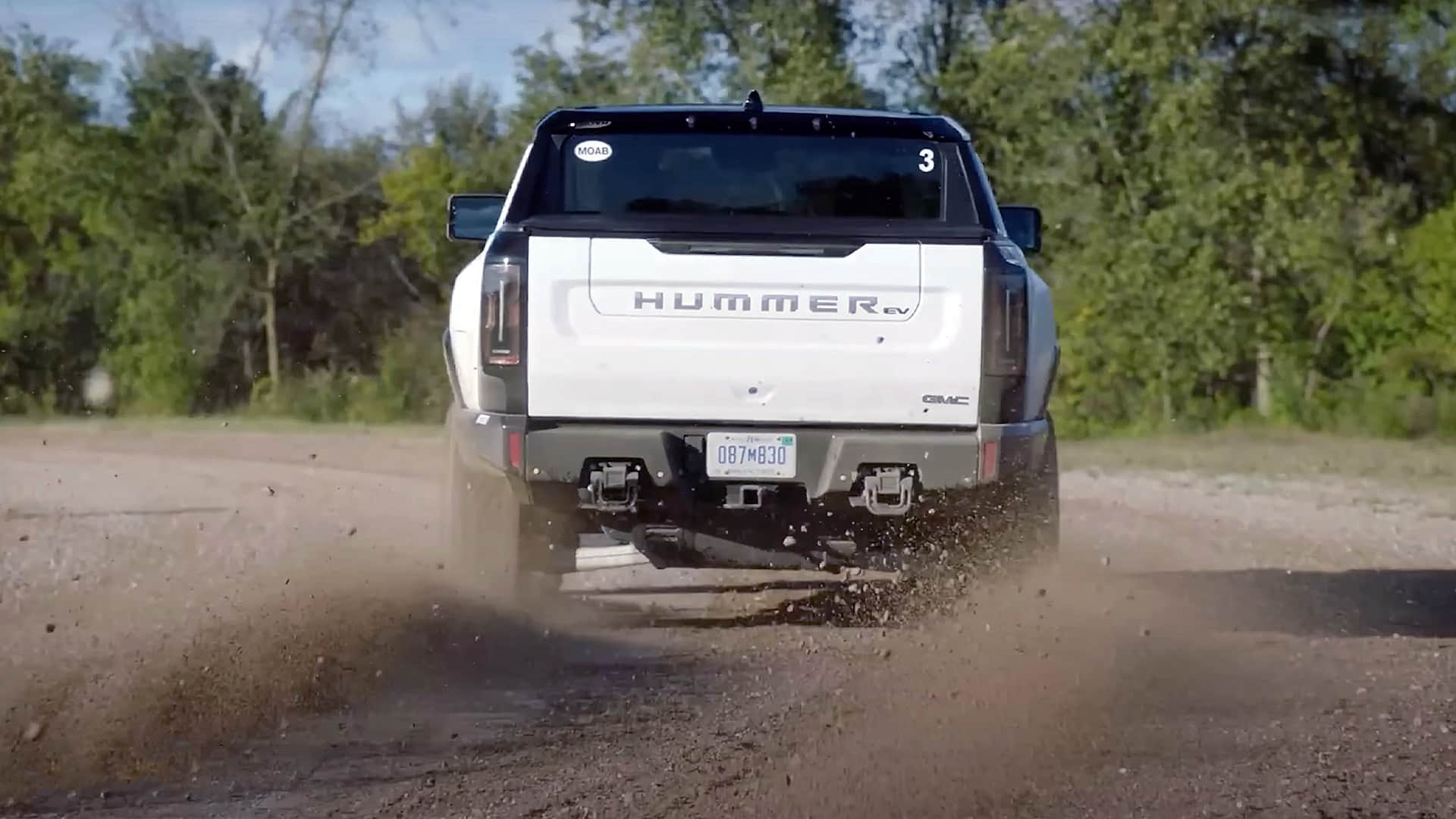
One of the most impressive things about electric vehicles is their powerful torque – it allows them to launch from a standstill and accelerate with incredible speed. But all that power has a downside: without proper traction, tires can slip on the road as it tries to transmit power through the wheels.
That’s why EV tires are designed with extra-wide central rib patterns that provide maximum grip in any weather conditions – even when you’re flooring it!
4. EV Tires Can Increase the Range
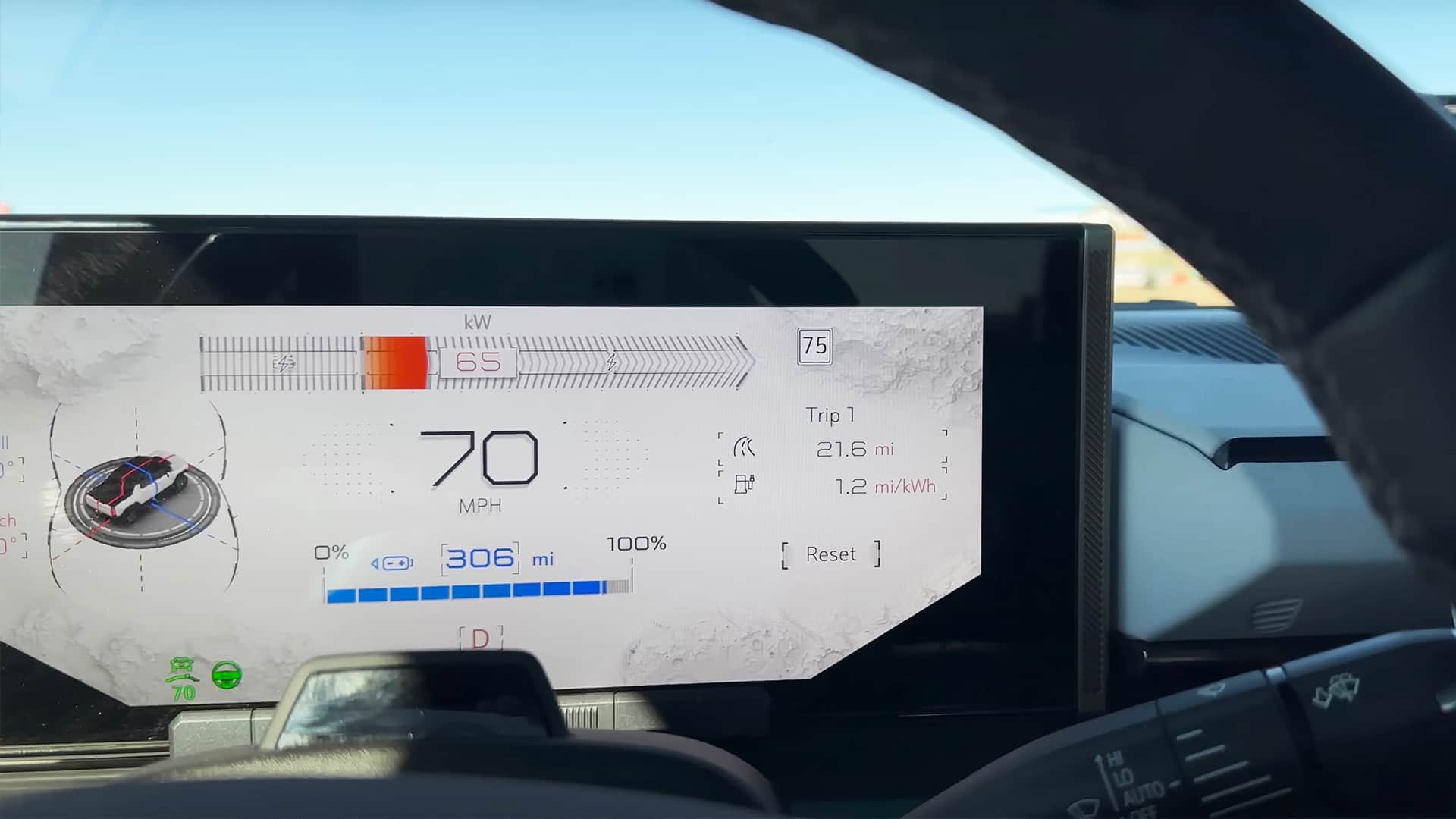
If you take a closer look, you’ll notice that electric vehicle tires have a different shape than traditional tires – they tend to be taller and narrower. But why is this?
EV tires are actually designed to reduce rolling resistance, which helps minimize the amount of energy your car needs when driving. This ultimately leads to longer battery life and greater range on a single charge! If you were to swap out your EV’s specialized tires with regular ones, you would likely lose some of that extra efficiency – meaning you wouldn’t be able to travel as far before needing a recharge.
5. EV Tires Are More Durable
As we’ve mentioned earlier, electric vehicles can be tough on their tires because of the added weight and torque. However, specialized EV tires have a solution to this problem: they’re built with high-loading resin that helps them resist wear and tear more effectively than regular tires.
While EV-specific tires may cost more upfront, it’s definitely worth it in the long run since you won’t need to replace them as often – giving you some real peace of mind! So if you’re looking to get the most out of your electric car, investing in specialized tires is definitely worth considering.
Why Are EV Tires More Expensive?
It’s true that electric vehicle tires tend to be more expensive than regular ones. One reason for this is that they require extra durability to withstand the added weight and torque of an electric car – which means they need to be made from special materials that can hold up under these conditions.
Another factor is that the market for EVs is still relatively small compared with traditional cars, so it costs more to produce specialized tires in smaller quantities.
But while the initial cost may be higher, it’s important to remember that equipping your EV with regular tires won’t necessarily save you money – in fact, you’ll likely end up having to replace them more frequently, which ends up costing more in the long run.
What Kind Of Tires Should You Get For Your EV?
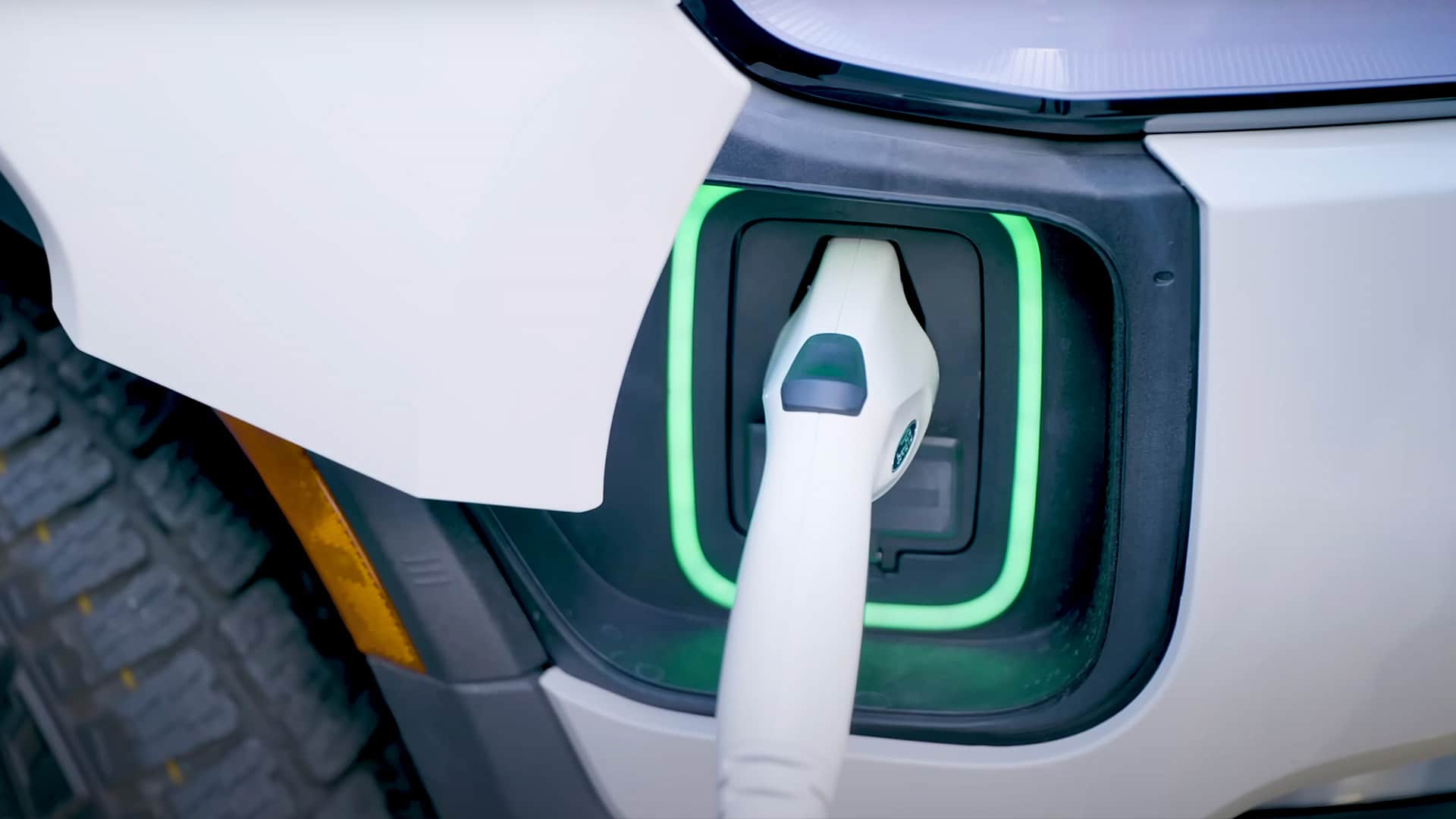
Nowadays, there are so many EV tire options out there – which is great news for electric vehicle owners! But with all those choices, it can be tough to know what to pick.
One option is to go with the same tires that originally came with your EV. After all, manufacturers put a lot of effort into selecting the best possible tires for each model. If you’re happy with your current set of wheels and feel like they’re doing a good job, replacing them with identical tires might be the way to go.
Of course, if you do want to explore other tire brands or models, there are plenty of options out there from top names like Bridgestone, Continental, Hankook, Michelin and Pirelli.
Ways to Extend the Life of Your eV Tires
Want to make your electric car tires last as long as possible? Here are a few easy tips:
Frequently Asked Questions
Do Electric Cars Have More Torque?
The answer is yes – electric vehicles produce much higher levels of torque, which gives them their impressive power and acceleration.
That’s why it’s important to use specialized EV tires designed to handle the high amount of torque produced by these cars. Another challenge associated with electric vehicles is their heavier weight due to large batteries – this puts even more strain on the tires.
Do EV Tires Last Longer?
It’s worth noting that electric vehicle tires can wear down faster than traditional tires, although the rate of deterioration depends on several factors. One of the most important is driving habits and style, which has a significant impact on tire longevity.
In comparative tests, EVs with two-wheel drive systems showed a decrease in tire mileage by as much as 25%. It may come as a surprise though, that four-wheel drive system vehicles experienced up to 10% more tire longevity compared to their two-wheel counterparts.
What Are The Best EV Tires?
If you’re looking for the best EV tires, top brands such as Pirelli e Nero, Continental Conti eContact and Michelin Pilot Sport EV are excellent choices. It’s important to note that not all electric vehicles are the same – there are varying types from small city cars to family hatchbacks and high-performance models. As a result, it’s crucial to select the right type of tire that fits your specific application in order to achieve optimal performance.
Don’t make the mistake of assuming that one size fits all when it comes to EV tires! Take into account factors like driving style, road conditions and weather patterns. By doing a little research and picking the right set of specialized tires for your specific car model, you can enjoy optimal comfort on any terrain while maximizing performance levels at the same time.
Do EV Tires Have Less Rolling Resistance?
EV tires are designed to minimize rolling resistance, which contributes significantly to their overall performance. In fact, up to 20% of the energy used in electric cars is due to tire resistance – so it’s crucial to use high-quality tires with low resistance.
This issue becomes even more important when it comes to electric vehicles since rolling resistance can have a significant impact on battery life and range.
According to Steve Howat, General Manager for Technical Services at Continental, Investing in low rolling resistance EV tires could help increase your car’s battery range by as much as 12%, which may not seem like much for shorter-range models, but can make a huge difference for newer EVs with ranges of 250 miles (400km) or more. So if you’re looking to get the most out of your EV and reduce the number of charges needed- be sure to invest in high-quality, low-resistance tires!
